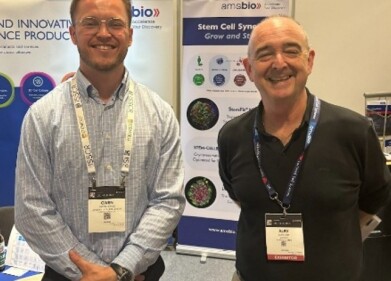News
New Centre to Spearhead UK Research in Synthetic Biology
Mar 25 2009
Programming biological cells so that they behave like engineering parts is the focus of research at a new UK centre backed with an £8 million grant from the Engineering and Physical
Sciences Research Council (EPSRC). The work could lead to the building of biological devices that could detect the early onset of disease or combat harmful bacterial infections. Imperial
College London in partnership with the London School of Economics and Political Science (LSE) will establish the Centre for Synthetic Biology and Innovation as part of EPSRC’s effort to push
the UK to the forefront of this field. Imperial’s Professor Richard Kitney, Director of the Centre, believes this new research facility will bring a wealth of new expertise to the UK.
"Imperial will recruit the best scientists from the UK and around the world to carry out collaborative research, generate intellectual property for licensing, and ultimately create spinout companies that will play a part in spawning new industries for the UK," Imperial’s Professor Paul Freemont, who is Co- Director of the Centre, says that in the next 20 to50 years research in this field will get to the point where synthetic biology techniques will have the precision of electronics. “Our understanding of how living cells work isn’t as good as our understanding of electronic devices. We want to get to the stage where we’ve got all the parts we need to build any biological machine that we want," he explained. Initially, researchers at the Centre will focus on
developing standard systems and specifications to create these parts. This will involve modifying DNA, inserting it into cells, and cataloguing what these cells do.
These will then be used to assembledevices for use in a range of applications. One long-term application includes the development of biological micro-processors, which for example, could be inserted into the body to monitor the health of patients, or detect types of cancer. Already, researchers at Imperial have developed some important components for use in a biological micro-processor, such as an oscillator, which is a device that keeps time. Scientists are also working on logic circuits for use in microprocessors, called ’AND’ gates, made from bacteria. Another application is the development of sensors to detect harmful bacteria. These sensors are designed to recognise a small molecule that is released when harmful bacteria begin to colonise surfaces.
Scientists say this device could have applications in the food and healthcare industry where samples from wiped surfaces could be placed on the infection detector’s chip. This would emit different coloured lights to alert the user to the type of bacteria that has infected the surface such as E.coli or MRSA, enabling staff to take remedial action rapidly.
The College will work closely with LSE to inform the public about the research that will be carried out at the Centre. This will involve lectures and outreach activities about the potential benefits of synthetic biology and its public value. LSE will also train researchers at the Centre in the social, ethical, legal, and political issues surrounding this emerging field. These include
examining the social and economic impacts of biotechnology, and developing practices of regulation and good governance. Professor Nikolas Rose, Director of LSE’s BIOS Centre, points out that consideration of the social issues has been built in to the very conception of this new centre. "We have developed a highly innovative link between life scientists and social scientists in teaching and research. Crucially, we believe that informed public debate, with active engagement by the research scientists, is essential if the many benefits of synthetic biology are to be
fully realised"
Digital Edition
Lab Asia Dec 2025
December 2025
Chromatography Articles- Cutting-edge sample preparation tools help laboratories to stay ahead of the curveMass Spectrometry & Spectroscopy Articles- Unlocking the complexity of metabolomics: Pushi...
View all digital editions
Events
Jan 21 2026 Tokyo, Japan
Jan 28 2026 Tokyo, Japan
Jan 29 2026 New Delhi, India
Feb 07 2026 Boston, MA, USA
Asia Pharma Expo/Asia Lab Expo
Feb 12 2026 Dhaka, Bangladesh



















